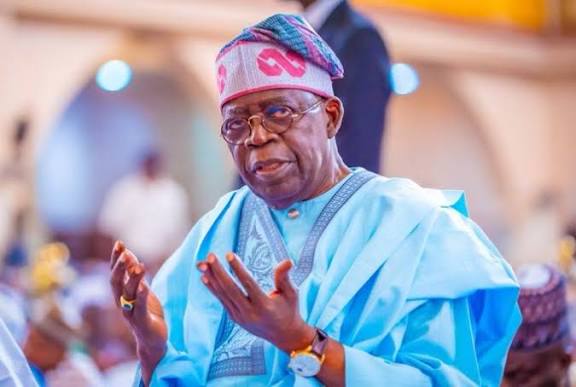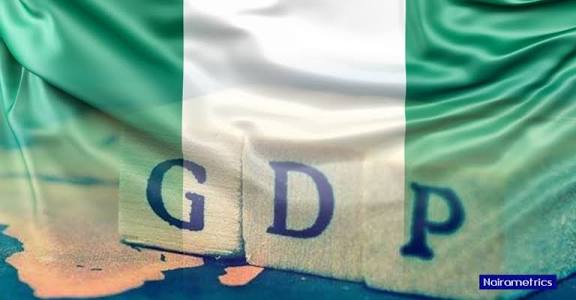According to the National Bureau of Statistics (NBS) in its recently published rebased data, Nigeria’s gross domestic product (GDP) increased by 3.13 percent in real terms during the first quarter of 2025 (Q1 2025), up from 2.27 percent in Q1 2024.
The Statistician General, Prince Adeyemi Adeniran, announced this in Abuja, explaining that after the GDP was rebased using 2019 as the reference year, earlier quarterly GDP figures were adjusted to match the updated annual estimates, thereby aligning the former data with the new rebased calculations.
“This method generated new quarterly GDP data, which are compared to the estimates for the first quarter of 2025. ” He mentioned that the quarterly GDP estimates increased by 3.13 percent in real terms compared to the same quarter last year in 2025. The growth rate surpasses the 2.27 percent noted in the initial quarter of 2024.
He mentioned that the Services sector was the primary factor behind the GDP performance for the quarter being examined, achieving a growth rate of 4.33 percent and accounting for 57.50 percent of the total GDP. He noted that the agriculture sector experienced a growth of 0.07 percent, a rise from the -1.79 percent growth that was observed in the first quarter of 2024. The industry sector experienced a growth rate of 3.42 percent, an increase from the 2.35 percent noted in the initial quarter of 2024.
In the first quarter of 2025, the combined contribution of the services and industry sectors to the total GDP was greater than what was recorded in the same quarter of 2024. He stated that during the reviewed quarter, the total GDP at basic price was recorded at N94,051,733.20 million in nominal terms.
Adeniran states that this performance is better than the first quarter of 2024, which noted a total GDP of N79,505,265.15 million, reflecting a year-on-year nominal increase of 18.30 percent.
Read Also: NBS might reveal updated statistics for the economy on July 11.
However, even after the GDP adjustments, Nigeria remains the fourth largest economy in Africa when considering the standard economic measures. The NBS reports that in 2024, the economy of the country has a value of N372. 82 trillion. He pointed out that with the current rate of N1,529.53 for each dollar, the economy amounts to $243,526,768,148.72 (billion) when calculated in dollars.
This indicates that Nigeria remains behind South Africa, whose economy is valued at $410,338 billion, as well as Egypt at $347,342 billion and Algeria at $268,885 billion.
In response to the NBS report on rebasing, the Chief Executive Officer of the Center for the Promotion of Private Enterprise (CPPE), Dr. Muda Yusuf stated that there were considerable expectations regarding the re-basing of the GDP, but he noted that the final results have not been as striking as many anticipated.
Yusuf, on the other hand, mentioned, “The positive aspect is that we now understand the economy’s structure more clearly. ” According to the data released by the NBS yesterday, the economy is currently on a de-rebased GDP. It is understood that the economy is larger than our previous estimations, yet it is not as extensive as some analysts had anticipated.
He noted that during this time, certain noticeable structural changes were evident in the economy. He pointed out that the real estate sector plays a very important role in the economy, now ranking third in its contribution to GDP.
Real estate has taken over the third position from crude oil. In addition to telecoms, the ICT sector has seen considerable growth. There has been a significant rise in the contributions of agriculture and services to the economy, indicating a decrease in the industrial sector’s share.
The beauty of what we are witnessing is a much clearer understanding regarding the economy’s contribution and structure. In my opinion, this is positive, and naturally, the economy is a bit larger than it was before. Our position in the global economy and the African economy will also be enhanced by this. At this moment, I believe we are in fourth place.
“Our ranking will be enhanced when we change this into dollars. ” He mentioned, “We can expect to observe an amount around $300 billion or so,” noting that the Nigerian economy remains in a transitional stage as the nation continues to deal with the ongoing reforms.
The reform has not completely established itself and has not yet produced the level of impact that we anticipate. Certain areas of the economy have not completely bounced back from the changes required by the current reforms.
As we approach 2025, assuming there are no significant disruptions, particularly from political events, we can anticipate a much stronger GDP outcome compared to 2024; a year that was essentially a period of economic change. By 2025, we anticipate that the effects of the reforms will improve, leading to a significantly better outcome for the GDP as well.
“I am referring to the year 2025, and that is what I anticipate. ” I have to admit that I anticipated Mr. would provide significantly larger GDP figures. What I have stated, President. Certainly, this is the situation we are in, and we look forward to improvement as we fully adapt to the new environment of economic reform. “Yusuf stated that increasing the GDP involves considerations of the environment, investment, and productivity, and these are the key areas that should be our focus in the future. ”
He mentioned that prior to the rebasing, the contribution of agriculture was 22.12 percent, but after the rebasing, it is now around 26 percent or 25.8 percent for agriculture. Before the rebasing, the industry made up 27.7 percent. Industries currently represent 21.08 percent of GDP, whereas the service sector was at 15.22 percent prior to rebasing. Currently, the contribution stands at 53.09 percent due to the rebasing. This allows you to observe the changes. using this complimentary ebook











